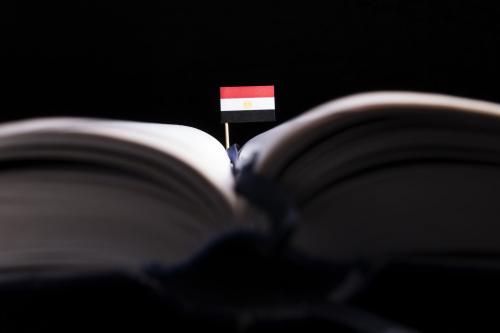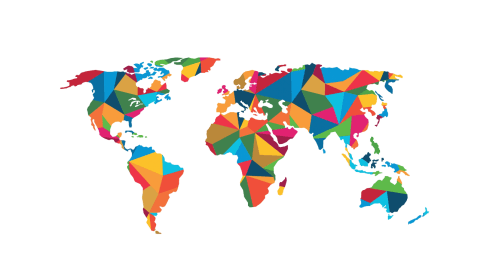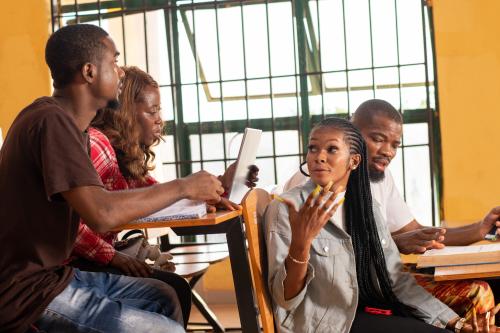The world’s six most influential rising democracies—Brazil, India, Indonesia, South Africa, South Korea, and Turkey—are at various stages of democratic consolidation. Freedom House ranks them all as Free in terms of political rights and civil liberties except for Turkey (which is at the top of the Partly Free category), and all six have enjoyed remarkable economic growth and improved standards of living in recent years. Yet when it comes to supporting democracy and human rights outside their borders, they have differed quite a bit from one another, with behavior ranging from sympathetic support to borderline hostility.
One revealing indicator of their stance toward international action to support democracy and universal human rights can be found in the votes that they have cast on relevant issues in international organizations. United Nations voting data compiled since 2004 by the Democracy Coalition Project, as well as a review of each country’s behavior at the UN Security Council and on the international stage reveal positions ranging from pragmatism to fairly strict allegiance to traditional principles of state sovereignty and noninterventionism. This essay presents a comparative examination of the voting patterns of these six countries in three key UN bodies—the Human Rights Council, the General Assembly, and the Security Council. The UN voting records of these countries must be understood within a larger context, however, and so we begin with brief accounts of the overall place of democracy and human rights trends in their foreign policies over the past decade.
Brazil
Formerly a country with a relatively quiet, inward-looking, and defensive foreign policy, Brazil has evolved into a more assertive regional—and increasingly global—player, a transformation that has coincided with the huge political and economic strides that the country has made in recent years. Brazilian diplomats often credit the country’s democratic consolidation and economic progress for its growing credibility and influence on the world stage. When it comes to wielding that influence in support of democracy in other countries, however, Brazil has been ambivalent and often unpredictable. If supporting democracy or human rights will help it to further its own goals of consolidating regional leadership, protecting business interests, or winning a seat on the UN Security Council, Brazil generally favors multilateral strategies geared toward pro-reform outcomes. But in the recent cases of Cuba, Iran, Venezuela, and most recently Syria, Brazil has taken a more ideological or “soft-balancing” approach, siding against the United States and Europe by avoiding criticism of human-rights abuses and ducking behind the defense of noninterventionism favored by diplomats in the foreign ministry.
India
The world’s most populous democracy was a founding member and leader of the Non-Aligned Movement during the Cold War. Its foreign policy is deeply rooted in the twin principles of anti-imperialism and noninterventionism. Yet as India has grown into a global economic power, its identity as a secular, pluralist, and democratically governed state has begun to influence its behavior in multilateral organizations. Thus, on the global stage, India has become increasingly vocal in favor of democracy, which it believes can be a strong foundation for international peace and cooperation. At the same time, the South Asian powerhouse maintains that democracy must not be imposed on other countries; rather, nondemocratic countries should seek out the assistance of India and other democracies if they themselves wish to make the transition to free societies. It will take some time for the traditionally noninterventionist diplomats in charge of multilateral affairs to implement the increasingly clear prodemocracy sentiments coming from the top political leadership in New Delhi.
Indonesia
Indonesia’s remarkable transformation from an authoritarian system to an open, pluralist democracy—the third largest in the world—has been accompanied by a significant reorientation of its foreign policy. In the past, Indonesia rejected international norms of democracy and human rights, claiming that they were incompatible with “Asian values.” Now the country strongly endorses the principles and values of democracy in its foreign-policy rhetoric, though it continues to oppose most human-rights initiatives at the UN. This transformation, accompanied by consistently high levels of economic growth, a growing middle class, booming foreign direct investment, and (for the most part) internal and external peace, is precisely its greatest asset when it comes to projecting its interests and values in Asia. Although Indonesia has—in word, if not in deed—pushed for democracy in the region, its advocacy thus far has had little impact. Today, the majority of ASEAN members are nondemocratic, and there is no meaningful regional mechanism to support democratic change. Nonetheless, Indonesia can claim credit for advocating the establishment of an ASEAN human-rights mechanism, albeit a weak one, and for bringing its foreign-policy rhetoric—though not its UN votes— more in line with its domestic credentials.
South Africa
Although South Africa’s record of democracy and human-rights promotion is in some ways laudable, it is perhaps the most disappointing case among the six. The country’s remarkably peaceful transition from apartheid to democracy under the inspiring leadership of Nelson Mandela raised high expectations that South Africa would become a strong ally of peaceful democratic movements in Africa and elsewhere. Yet when faced with tough choices, South Africa’s four postapartheid presidents have generally aligned themselves with nationalist or pan-African movements, either acting in “South-South solidarity” or choosing neutrality vis-à-vis autocratic regimes. Faced with deep-rooted economic and social challenges at home, South Africa tends to prioritize foreign relations that help it to achieve such domestic priorities as rural development, job creation, and crime prevention.
South Korea
After emerging from three decades of military rule in the early 1990s, the newly democratic Republic of Korea quickly became a reliable supporter of multilateral efforts to promote democracy and human rights. Its generally strong voting record on these issues at the UN during the past two decades, particularly under President Kim Dae Jung (1998–2003), is no doubt influenced by its security alliance with the United States. South Korea’s record of democracy support has been somewhat constrained, however, by its attempts at rapprochement with North Korea and by its heavy dependence on oil exporting states such as Iran. An active participant in the Community of Democracies since the organization’s founding in 2000, Seoul hosted the group’s second ministerial meeting in 2002. As there is no East Asian regional body with a democracy agenda, South Korea has instead relied on ad hoc initiatives to offer cautious support for democratic transitions abroad.
Turkey
A candidate for European Union membership, Turkey stands apart from the other countries considered here. As part of the EU accession process, Turkey has been a recipient rather than a provider of democracy assistance. The goal of EU accession has undoubtedly helped to bring Turkey’s own democratic standards and practices more in line with liberal international norms, although it still has progress to make. Nonetheless, its improvements in human rights and democratic practices thus far are a testament to the positive role that EU enlargement has played in expanding the circle of democratic, rights-respecting states throughout wider Europe. Because Turkey has fairly successfully managed its own transition from a military-dominated state with weak checks and balances to a thriving, competitive, multiparty, and multiethnic society in which Muslim democrats now win elections, it has great potential as a defender of democracy and human rights abroad. It deserves some credit, for example, for its willingness to stand up for democracy and human-rights activists in the context of the “Arab Spring” despite complicated geopolitical interests.



Commentary
Do New Democracies Support Democracy?: The Multilateral Dimension
October 26, 2011